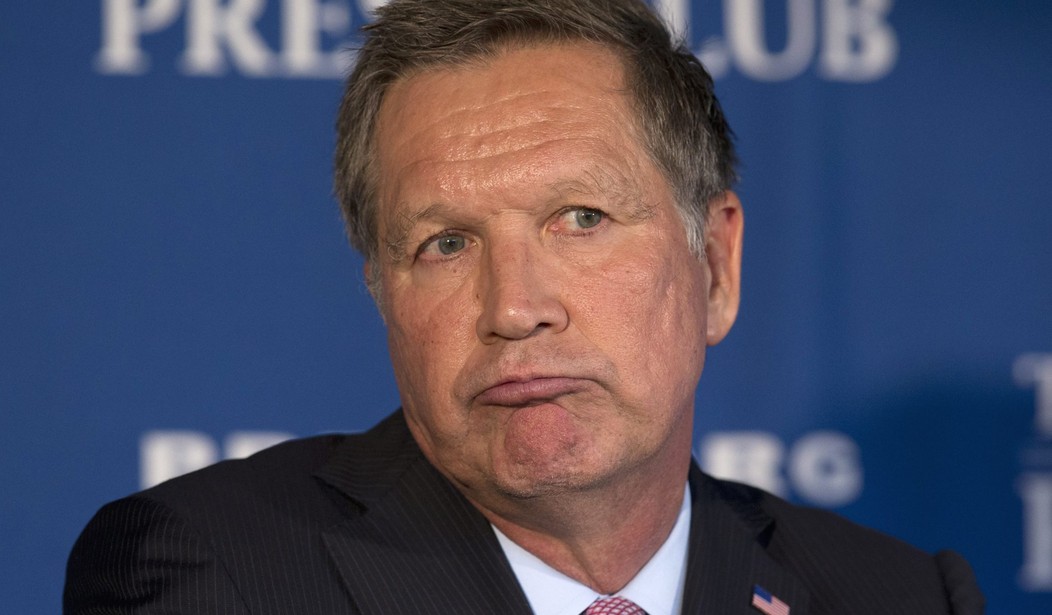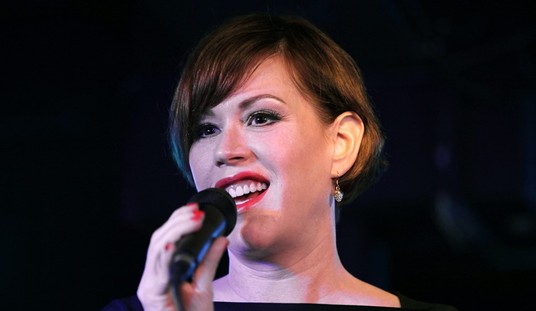Perhaps a modern presidential primary debate, full of political one-upmanship, is not the best place to look for thoughtful answers to serious questions – but, still, it was infuriating to see the way every Republican on stage Thursday night made a complete hash of the issue of religious liberty.
The only candidate who actually tried directly to answer moderator Hugh Hewitt’s questions on the subject was Ohio Governor John Kasich, but he got the answer so wrong that it he seemed to barely appreciate the actual premise of the issue. (More on Kasich in a moment.) Alleged billionaire Donald Trump, meanwhile, was utterly incoherent, as if the very words “religious liberty” were from a foreign language, half Chinese and one-third Swahili, with a little Star Wars Wookiee dialect thrown in.
Asked twice, quite directly, about religious liberty, Trump first talked about judges refusing to rule Obamacare unconstitutional and then spoke about how important it is for “somebody to make deals.” Asked a third time, he segued into yet another discussion of Planned Parenthood, which he was for funding via federal taxpayers before he was against funding before he was for funding before he was critical of it for providing abortions but still for funding all the mammograms (that it doesn’t actually do). Not a word of what he said, of course, had a single thing to do with religious liberty.
And even Senators Cruz and Rubio and Dr. Ben Carson, who at least appear to understand what the issue is, addressed it only obliquely before changing the subject.
In the civic realm, especially in the United States, religious liberty is both the first freedom (or even the “founding freedom’’) and also, counterintuitively, one of the most fragile. From its original meaning as the freedom to express and act upon one’s faith, it now has been wrongly reinterpreted by elites to mean a freedom from being inconvenienced by another person’s faith-based expressions or actions. Moreover, religious liberty these days seems to be conflated with the moral worthiness of opinions about hot-button issues related to sexuality, when in fact the freedom itself is deeper, broader, and also more basic and simpler.
The imperative to respect religious liberty depends not on the specific content of the dispute at hand. It matters not whether the faith being practiced is Christian or Hindu or Zoroastrian. It matters not whether those involved are homosexual or one-legged or burdened with abnormally Julia-Roberts-like good looks. What matters – absent acts of invidious discrimination based on immutable characteristics (rather than on behavior) – is whether faith is left free to be acted upon without stricture or mandate from government.
A Christian club on a public-college campus should not be forced to open its club-officer ranks to atheists. A pastor has a right to preach from the pulpit without being monitored by the IRS. A social worker has a right (indeed, a moral and perhaps professional duty) to ask a colleague to treat a patient if her own religious beliefs would interfere with objective assessment of the patient’s moral choices. And, surely, a Catholic hospital has the right not to perform abortions.
Yet some of the same media types who shriek when a photographer refuses to take pictures at a same-sex wedding would man the ramparts on behalf of a Muslim businessman who refuses to provide a service for a bar mitzvah. In other words, they choose positions based on whose ox is gored, rather than on the underlying principle involved. That principle is simple but profound: Individuals as well as faith-based institutions are supposed to be free from government’s grip when exercising – not just professing inside the walls of a church, but exercising in their lives – their faith.
This leads back to what Kasich, who did (admirably) try to answer Hewitt’s question on its own terms, said both during the debate and earlier in the week. Referring apparently to food for same-sex ceremonies, Kasich had said that “if you’re a cupcake maker and someone wants a cupcake, make them a cupcake. Let’s not have a big lawsuit or argument over all this stuff.”
During the debate, Kasich elaborated on that statement, as follows:
If you’re in the business of selling things, if you’re not going to sell to somebody you don’t agree with, OK, today I’m not going to sell to somebody who’s gay, and tomorrow maybe I won’t sell to somebody who’s divorced.
I mean, if you’re in the business of commerce, conduct commerce. That’s my view. And if you don’t agree with their lifestyle, say a prayer for them when they leave and hope they change their behavior.
But when it comes to the religious institutions, they are in inviolate in my mind, and I would fight for those religious institutions.
But Kasich misses the point. The point is not whether somebody in commerce “agrees” with somebody else or not, and it’s not even an issue of whether the customer involved is choosing a lifestyle with which the proprietor’s faith approves. The issue is entirely one of government compulsion. If what the business owner is being asked to do isn’t merely to provide a product or service in general, but to materially participate in actions that impinge not on his opinions but directly on his faith beliefs, then does government have legitimate authority to compel him?
The issue is government compulsion or lack thereof. Period. Freedom in the civic realm – unlike the “freedom of a Christian” which was the subject of so many spirited theological debates between Martin Luther and Desiderius Erasmus – is specifically about the individual right to follow faith without fear of civil punishment.
To treat an individual’s rights as somehow less than an institution’s rights, as Kasich does, is to upend the Bill of Rights entirely: Constitutional protections are first and foremost individual, not collective. And they involve not merely morally advisable commercial practices, but immutable rights pre-existing government’s very formation.
To those of faith, men are spiritual beings long before, and much more profoundly than, we are commercial actors. Anybody who doesn’t at least understand that this is what is at stake – regardless of which side one takes on culturally divisive issues – probably does not belong anywhere near the Oval Office.
Quin Hillyer is a veteran conservative columnist. He has an undergraduate degree in Theology from Georgetown University and has served for years in various forms of ecumenical lay leadership.








Join the conversation as a VIP Member